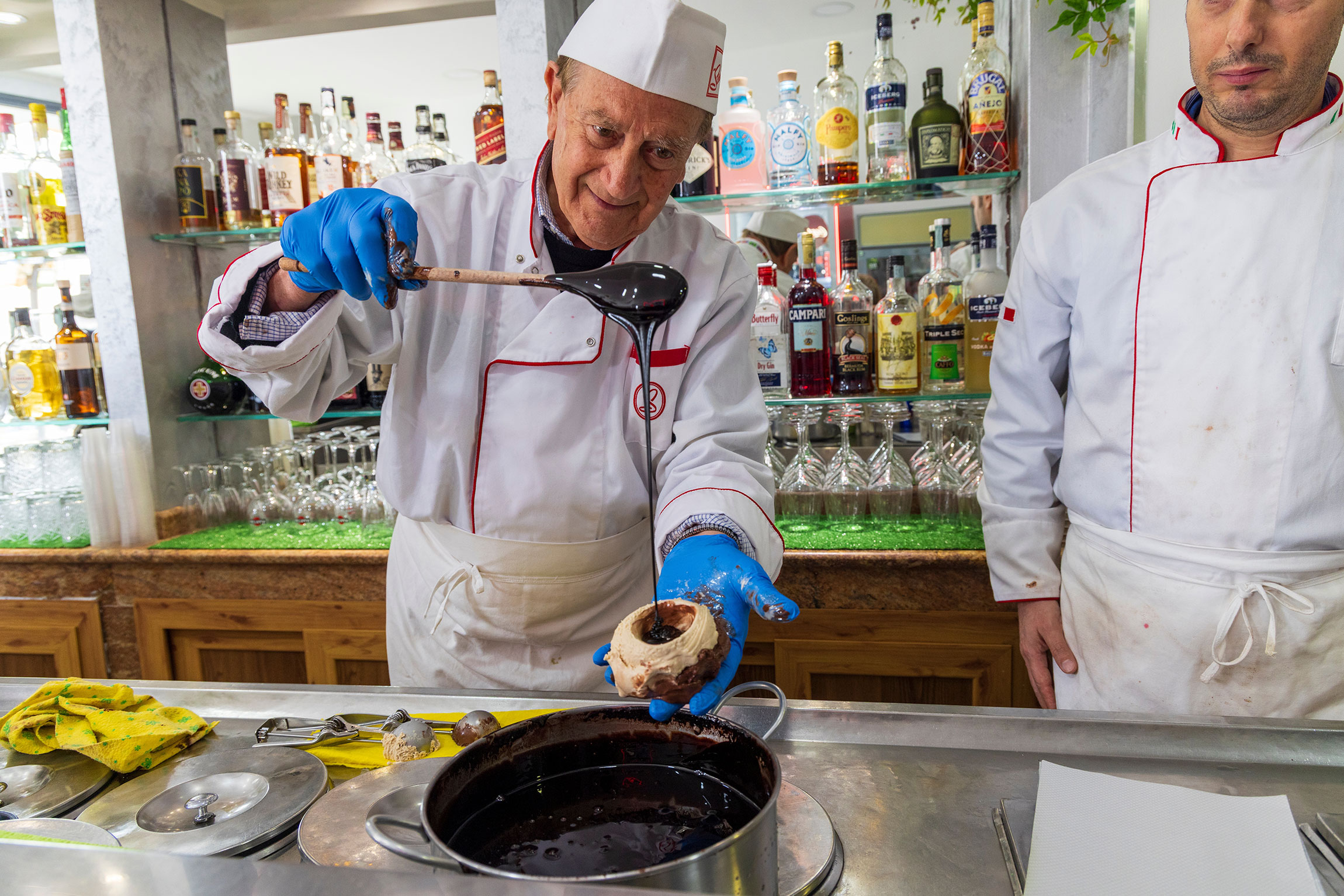American folk singer Ben Slavin wants his music listeners to know where he is coming from. For nearly ten years, Slavin has been living in Naples. Prior to that, he lived in Milan, where he continued his studies as a dramatic baritone after completing his studies in Arizona.
After a couple of side projects, he settled in Naples; the city that is now his home and core for his debut album Palepolis; which is ancient Greek for Naples. It is an album that expresses both the good and bad aspects of Naples from an expat point of view. Palepolis was recorded in the seventeenth century basilica of San Severo with the help of L’Altra Napoli association and Telecom Italia.
Slavin wishes for listeners to discover another side of Naples, far from that of the media’s depiction of Naples as a city of crime and mafia activity. The video for Tie and Bound shows the different aspects of Naples. He believes that there are few albums that talk about specific places, which has definitely set his album apart from other folk albums along with his classically trained voice.
Slavin is currently preparing for upcoming performances in the States, including one on August 17 at The Mint in Los Angeles.
How would you describe your music, in terms of your personality?
I started off as an opera singer, and I studied in Milan. I didn’t become an opera singer, because it didn’t fit with my personality at all. I think that folk music can give you the opportunity to write and express yourself in a direct way. I find folk music to be an easier way to get the message across.
What has been the American and Italian response to “Palepolis?”
In the States it has gotten a great response. Not a lot of people pay much attention to their culture. Just as Naples is often overlooked as a city, because everyone goes to Venice, Rome, or Florence, and Naples being probably one of the most important art cities in the world is often overlooked because of its reputation. The problems of the city are changing as well, the people are more willing to collaborate to clean it up, and hopefully the world will begin to pay more attention to Naples. The Neapolitans have been very positive, because I think someone has taken so much time to talk about their city, and the album only talks about Naples itself.
You have an upcoming concert in Los Angeles. What would you like to convey?
My main goal is to present the Neapolitan culture from an expat point of view, to bring the good and bad aspects of Neapolitan culture. To have people not only discover the city, but also the culture that is not just a city with its rich artistic world, but a culture that has the language of Neapolitans. My main goal is for people to hopefully discover a new culture and to enjoy my music.
What are some major differences culturally or artistically, between America and Italy?
Naples is going through a very difficult period right now. There are a lot of amazing musicians, but the problem is that there are not a lot of places for them to perform, play, express or to have the opportunity. Italy in general is going through an economic crisis, which translates into an artistic crisis. I find that it is easier to have a project in the United States and get in. There is more of a sense of creating something. When you go to New York, Los Angeles, or San Francisco, there is a creative community. In Naples, it is much more difficult, because it’s not as organized. It doesn’t mean that there is no talent. There is a huge amount of talent in Naples and it tends to be scattered. They can’t sing at an organizing moment, although some are trying. I think that is changing as well, but unfortunately it is happening too slowly.
Anything musically you would like to see from America in Italy, or vice versa?
At the moment, many Italians are using their own dialect inside of music, singing in Neapolitan or Sicilian. I wish that Americans in folk music could be more colloquial, more specific about their own roots. Things tend to be generalized in the States. We don’t know where singers come from and sometimes you wish it could be more specific. I have come to identify myself as a person from New Jersey and even though that is not great as Tuscany, it still has a strong cultural background behind it. There are still a lot of things, which are a big part of me, and I wish more American songwriters could use this kind of colloquialism side in their music.
What would you say was your favorite part of creating Palepolis?
Collaborating with amazing musicians and being able to express myself as an expat. Although it is very difficult, I still think I wouldn’t live anywhere else in the world. I love telling how I got here, about all the people who I have met, the historical monuments, and the legends that I have learned, and about being able to communicate through a common theme, which is American folk.

























